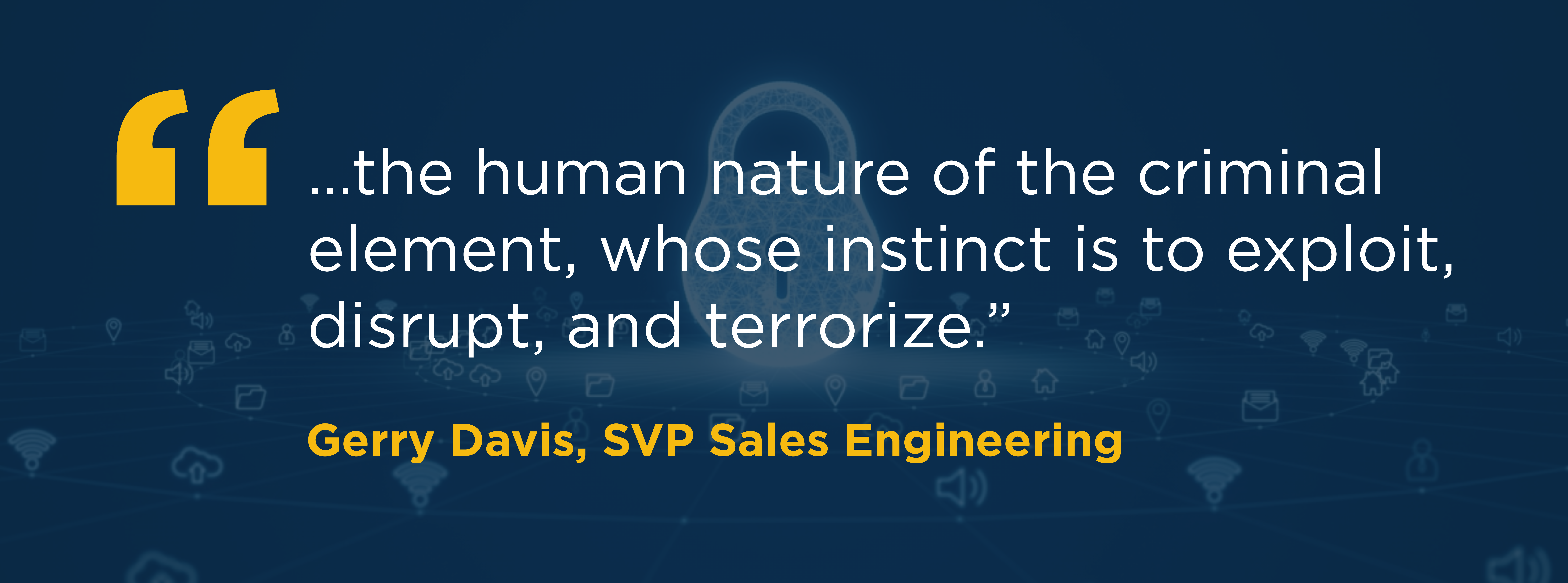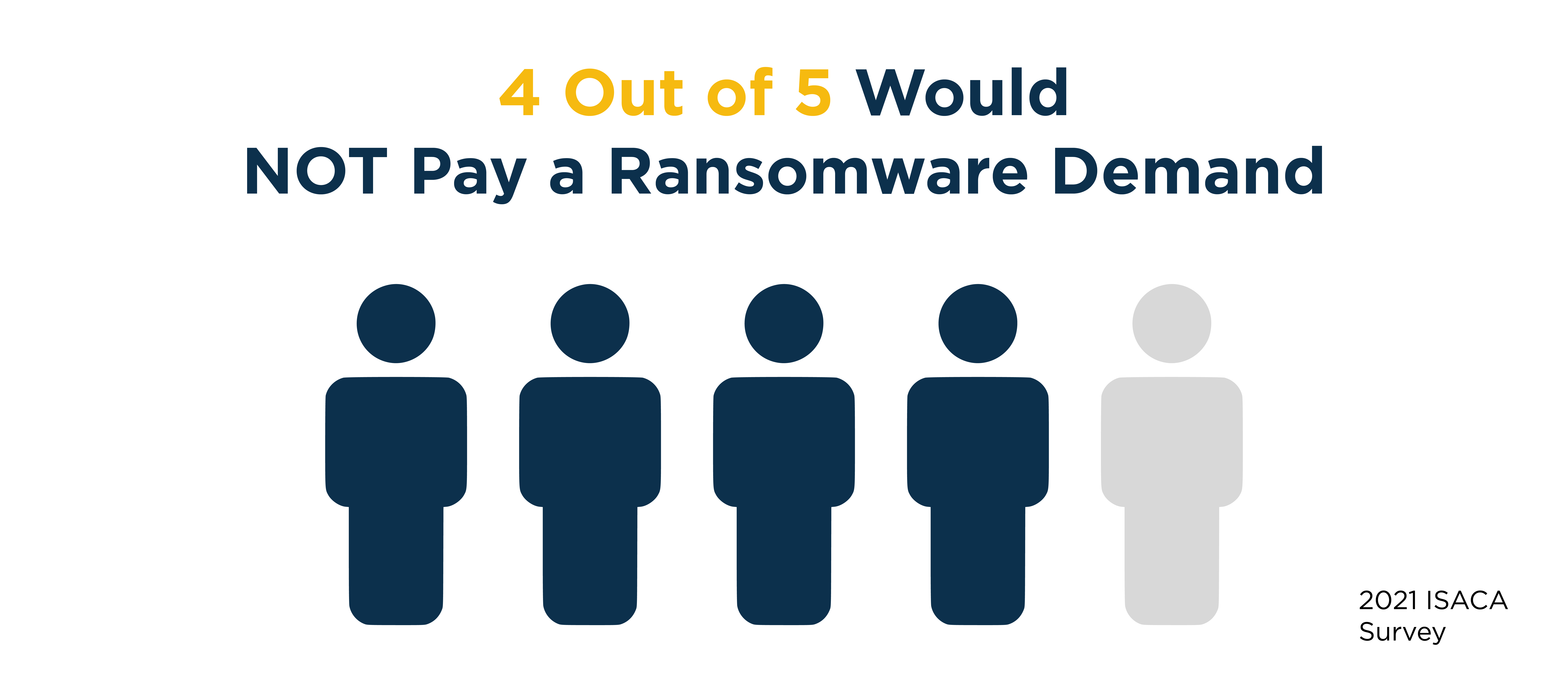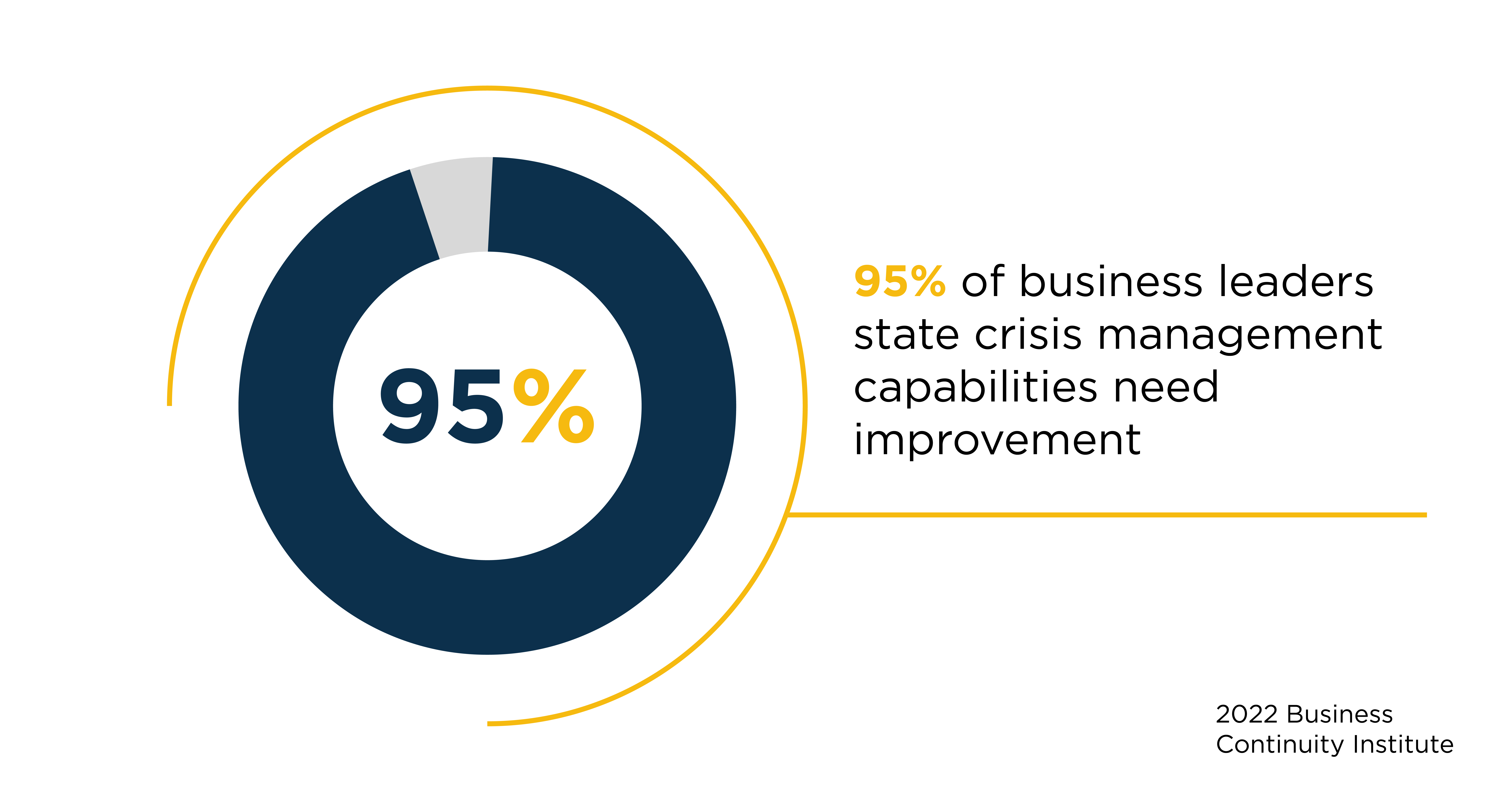The Cyberattacks we see in the headlines are causing C-suite and IT managers a lot of anxiety, and those are just the ones you see in the headlines. There’s are lot more that happen and go unreported. You can do your best to help them prepare – and there are a lot of great solutions – but at the end of the day, technology professionals need to treat this as an issue of business continuity.
Folks on the East Coast may be more familiar with being prepared for a natural disaster to strike (not saying anything against the West Coast’s earthquake kits, check those expiration dates), but cyberthreats are just another type of natural disaster. This nature, however, is the human nature of the criminal element, whose instinct is to exploit, disrupt, and terrorize. As a Sandler Partner, you can help your customers get above it and weather natural or man-made disasters.

Make sure your customers are protected and educated on what security measures need to be in place to mitigate risk. There are high-level considerations that need to be in place. During our 2022 National Summit, Bryce Austin, noted author and Cybersecurity Expert, provided our keynote, which covered everything from the history of Cybersecurity right through to his experience (and he is a sought-after CISO) with a client who suffered a Ransomware attack and the beat-by-beat run down of the experience. You can read more about it, and watch the keynote, by visiting the 2022 National Summit Keynote Presentation blog post. It does a great job of providing an overview of damage recovery plans, identifying who needs to be involved, and setting the right mindsets.

According to the 2021 ISACA survey 4 out of 5 would not pay a ransomware demand. Let’s continue with our specific topic, where security conversation truly is a business continuity discussion. Help your customer imagine that they are hit with an attack, ransomware for example, which evades many of their security measures that are in place. Are there adequate backups to restore from? Do they have a disaster recovery option to failover to? Can they easily identify how much of their network and data has been exposed? Do they have the personnel, or specialized security services, in place who can step up and address the issues? What business functions/network/assets can they be without for 12 hours, a day, a week, a month, a year, or even lose forever? Would they be able or willing to pay a ransom demand, and if so, could they identify and reduce a portion of the threat surface (affected area) allowing a strong negotiable position for reducing the expenditure? Do they have a Crisis Response Plan in place for this scenario – including who needs to be notified (internal and external), what actions need to occur immediately, and which can be deprioritized for another day?

The 2022 Business Continuity Institute explains that 95% of business leaders state crisis management capabilities, need improvement. Some of the questions above will be sobering. Some may vitalize the client to engage with resources to increase preparedness and achieve a higher degree of readiness to respond should an event occur. Losing connection. Power outage. Compromised network. Corrupted files. On that very bad day, at the end of the day, what will the outlook be – an unknown number of days ahead which will also be bad, or an action plan that is already being executed? Security really is just an extension of a business continuity discussion! Look to mitigate risk with security solutions, but also look to recover if the worst-case scenario happens. Also, know that Cybersecurity personnel and response services are in tight demand, and the only way to avoid days, weeks, or months of delay is having them in place before an event occurs. You will never get guarantees after the fact; make sure they are in place before the act.
There are many ways to approach the Cybersecurity conversation, but all require you to understand them and be ready to engage. We have many blog posts on our website’s News and Events page, and a dedicated Cybersecurity Education page, plus Cybersecurity videos, Provider Trainings, and Security Awareness Training at SandlerPortal.com for Partners. We will continue to offer training (both online and in-person) for groups in the future. You can contact myself and the Sandler Partners Sales Engineering team at [email protected] for immediate help, or find your complete support team – Channel Manager, Channel leader, dedicated regional Sales Engineer, Partner Experience liaison, and Partner liaison – on the homepage dashboard of your Sandler Portal.
Thanks for reading, and remember, we are always ready to help you bring your customers the technology solutions they need.
Author:
Gerry Davis
Gerry Davis is the Senior Vice President of Sales Engineering. Gerry leads the Sales Engineering team at Sandler Partners and works hands-on driving education within our Partner community, driving revenue through customer discoveries, and developing customer facing solutions with our agents. Leading technology authority and subject matter expert–a position he maintains with infinite curiosity, and shares with tangible excitement.
